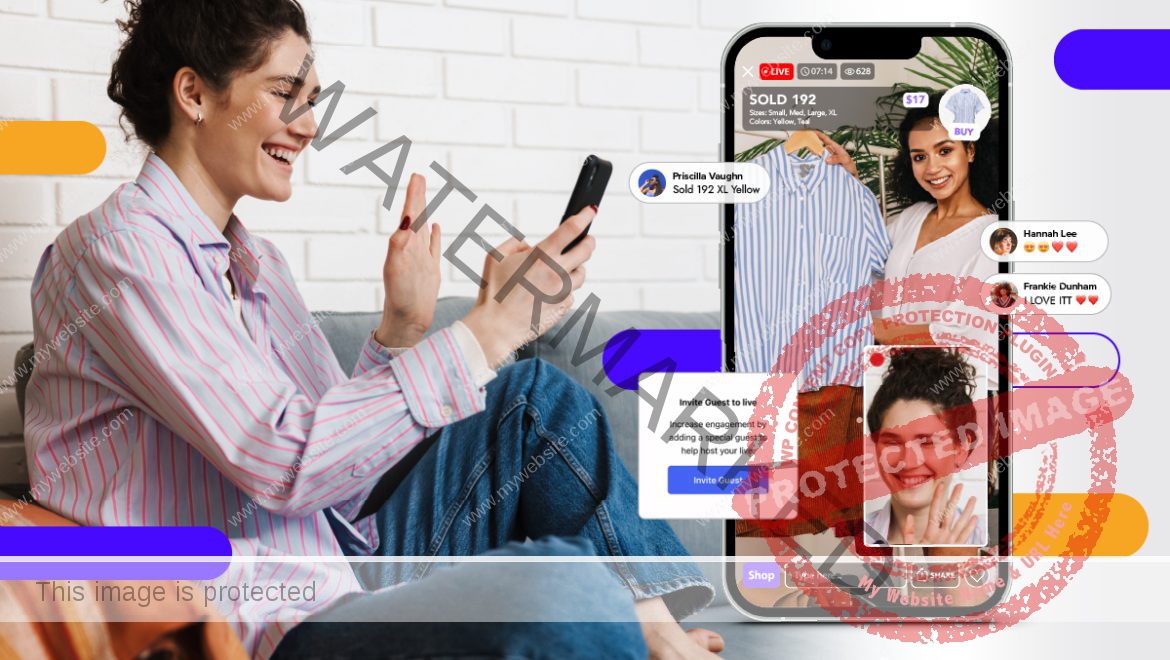Diddo’s new funding will bring its shoppable TV API to streaming platforms | TechCrunch
Diddo is an API for streaming services and other platforms to integrate shoppable videos, enabling consumers to buy their favorite characters’ clothing and accessories directly on their screens. The company announced Wednesday that it raised $2.8 million in seed funding.
Diddo was founded in late 2022 by Rishi Nair, Ryan Sullivan and Pamela Chen, and started as a Google Chrome extension built for Nair’s and Sullivan’s mothers who are “Selling Sunset” fans and wanted to dress like their favorite reality TV stars. Now, the company has developed an API that uses proprietary computer vision AI technology to identify products in TV shows and movies. The AI also pulls comparable products so shoppers can buy lower-priced dupes if, for instance, Kim Kardashian’s $700 Balenciaga T-shirt is outside of their price range.
The funding round was led by Link Ventures, with participation from Neo, Dante D’Angelo (Valentino), Erica Lockheimer (LinkedIn), Camille Ricketts (ex-CMO of Notion), an unnamed Disney exec and Scott Forstall, who is known for leading the Apple team that created iOS, among others.
The new capital will support product development and expand the company’s eight-person team. The company recently hired Rob Sussman (also a Diddo investor) as COO; he’s the former Sundance CFO and executive vice president of MGM+ (formerly Epix).
Diddo has signed deals with 12 companies so far, including Dailymotion, Mux, the Highlights App, social sports platform PlayersOnly, film and TV collective The Big Picture, fashion brand Blair New York and more. The company also revealed that it’s actively in talks with Hulu and another streaming giant.
Diddo says its API stands out from competitors due to its computer vision technology, which sits within a platform’s video player.
“We’re the only company that’s doing it so far,” Nair told TechCrunch. “These companies don’t have to send their video outside of their ecosystem. That’s a huge deal because all these media companies [think] it’s a non-starter if they have to send their video outside the API to run the computer vision. So, what we’ve been able to figure out is setting our computer vision within their video ecosystem so that we can go fully from video ingestion to commerce capabilities without leaving.”
One of the challenges about this, however, is that running computer vision over a video that is being watched by millions of users simultaneously is “incredibly tolling on the end user’s device,” Nair said. “In order to avoid this issue, we have decided to build out the product with a time-stamped approach to documenting the products. By this, we run the computer vision once over the video, where it identifies all of the products found within the content and puts them in a time-stamped database. Because the products in on-demand content do not change, we only need to run it one time on our side and require nothing from the streamer or the end user.”
Additionally, no QR codes are required (like Peacock’s Must ShopTV feature), and products are not presented as intrusive advertisements (see Roku’s shoppable ads), so users aren’t removed from the viewing experience.
With Diddo, people can view all items in an interactive storefront after the episode has finished. They then complete the purchase through a native checkout capability, which includes integrations with major e-commerce services, such as Shopify, Amazon, WooCommerce, BigCommerce, Magento and Salesforce Cloud. Diddo also collects user data on which products people are interested in to recommend similar items to them in the future.
Diddo takes a 4% to 6% fee on all purchases made on the platform.
The recent funding round follows Paramount’s partnership with AI-powered shoppable technology Shopsense AI. The streamer debuted its new mobile shopping experience on April 7. Last week, Amazon’s Prime Video and Freevee released a free, ad-supported channel for shoppable livestreams.










